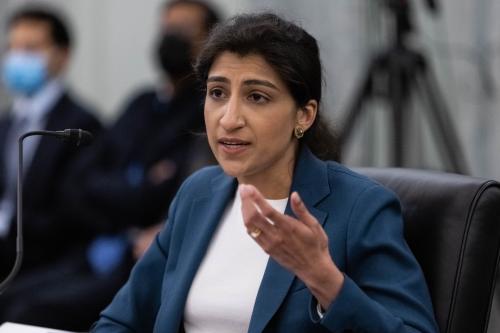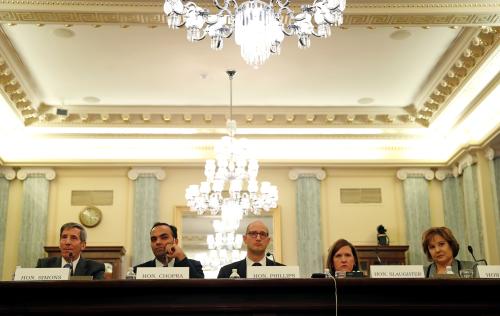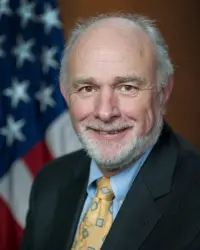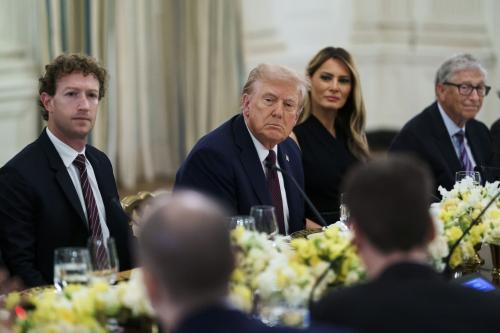This article was originally published in The Washington Post.
When the president talks about competition — as he did in Friday’s executive order — most people think about the antitrust lawsuits brought against Google and Facebook by the Justice Department, the Federal Trade Commission and many state attorneys general. Those challenges to dominant tech platforms take us in a good direction. The Justice Department and the FTC have ample power to challenge anticompetitive mergers and behaviors in the tech sector and more traditional markets.
But litigation takes a long time to produce uncertain results. There are many other tools in the competition toolbox. President Biden is right to issue an executive order making sure we use them all to benefit consumers and small business.
Why should a minimum wage retail worker be restricted from working for a competitor where she could earn a higher wage? The Federal Trade Commission should adopt a rule banning these ridiculous non-compete clauses that inhibit worker mobility. Why can’t we stimulate airline fare competition by providing low-cost foreign and domestic airlines better access to U.S. markets? The Transportation Department has the authority to do just that — and much more, such as requiring full disclosure of hidden baggage and cancellation fees when we book a flight.
Why do those of us living in rural or small-town America have only one costly option for Internet service? The FCC can ensure we have alternatives. Railroads often provide farmers with the only way to get goods to market. How is it that so many railroads face no competition on their routes? The little-known Surface Transportation Board has the authority to prevent the kind of price gouging by railroads that cheat farmers of a fair price. Why, until just this last May, were the hard of hearing not allowed to buy hearing aids online or at a pharmacy without a prescription? Because the Trump FDA refused to use its authority to allow the devices to be sold over the counter.
The list goes on. Though we live in an age of innovation and venture capital for start-ups has never been more plentiful, key sectors of our economy remain uncompetitive. Without competition, companies can charge consumers more and pay workers less. The federal government has considerable, largely underused power to ensure that we as consumers and workers benefit from competitive markets. And that is what Biden’s executive order on competition seeks to achieve. It identifies some 72 initiatives that federal agencies with authority over banking, agriculture, transportation, shipping and health care, to name just a few, can take to further free market competition, help workers and consumers thrive, and make our lives better.
The Biden initiative, as you might expect, faces opposition. Monopolists won’t easily surrender their profits. But the sad reality of the United States’ free enterprise system is that in far too many sectors, competition has declined or disappeared, and private firms are often free to act like unregulated utilities. They enjoy all the benefits of state-sanctioned enterprises and none of the government oversight.
We didn’t get to this point by accident. A generation of judges has weakened the legal reasoning that powered the antitrust laws in the first place. The cozy relationship between regulators and the industries they regulate often makes consumers an afterthought. The federal bureaucracy is too often siloed with officials failing to consider the effects their actions might have on consumers, workers, small businesses and family farmers.
President Barack Obama took a first step. Late in his second term, he issued an executive order directing agencies to consider competition in their decision-making. Obama’s executive order was more limited than Biden’s, the latter of which establishes a new White House Competition Council and specifically emphasizes the ability of the Justice Department and the FTC to challenge anticompetitive mergers under previous administrations.
Obama made some progress: The FCC’s 2015 net neutrality rule limited the arbitrary power of Internet service providers; the Transportation Department’s proposed airfare transparency rules sought to require airlines to disclose hidden fees in the upfront fare. Ultimately, however, Obama ran out of time and the Trump administration reversed the modest progress that had been made.
Biden has tapped an unusually strong set of antitrust experts such as Tim Wu at the National Economic Council, Lina Khan, the new FTC chair, and Attorney General Merrick Garland to make sure there is follow-through. Biden may also see support in Congress, and not just among the most progressive. Last month, the House Judiciary Committee advanced six bipartisan antitrust bills, which would introduce sweeping reforms aimed mostly at tech companies.
All this has the business community — at least that part of it that enjoys monopolies or near-monopolies in their lines of work — understandably spooked. That’s to be expected. But the four-decade dilution of the power of the federal government to tame capitalism’s worst instincts that began during the Reagan era needs to come to an end. Our economy relies on the premise that vigorous competition produces the best results. Competition drives prices down, rewards quality and ensures open competition for our labor. It is time for Washington to stand up and enforce that premise.
The Brookings Institution is committed to quality, independence, and impact.
We are supported by a diverse array of funders. In line with our values and policies, each Brookings publication represents the sole views of its author(s).







Commentary
The Biden administration takes an overdue first step to foster competition
July 10, 2021